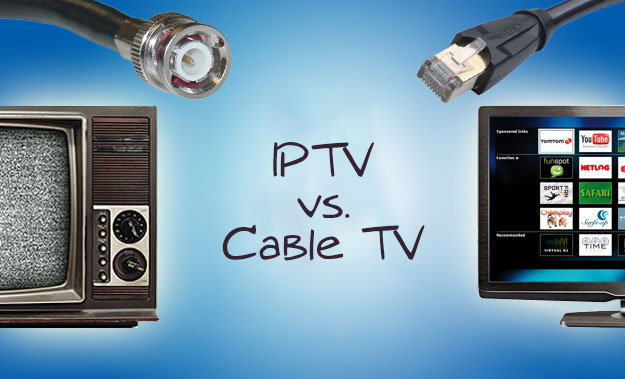IPTV vs. Cable TV: Which is Right for You?

As the use of IPTV (Internet Protocol Television) continues to gain momentum, more people are becoming curious about how it compares to traditional cable TV. Despite both platforms offering access to live TV, there are various contrasts that can affect which option is more suitable for you. Understanding these differences is essential in making an informed decision about which service to choose. In this detailed article, we’ll explore the differences between IPTV and cable TV. You can read this article to get help deciding which service suits you better. And get a comprehensive guide about IPTV vs Cable TV.
IPTV: What is it?
IPTV delivers TV programming via the internet protocol suite over a packet-switched network. It replaces traditional TV delivery systems. It uses your internet connection to stream TV channels, movies, and other video content directly to your device. IPTV offers a wide range of channels from different countries, languages, and genres. It also offers other features such as recording, pausing, and rewinding. The cost of IPTV is usually lower than Cable Television.

Cable TV: What is it?
Cable TV is a traditional method of delivering television programming to households via coaxial cables. This method has been around for decades and has been the go-to option for most households. It offers a variety of channels and programming options, including sports, news, movies, and other types of content. However, cable TV often requires a cable box, which can be an additional cost, and the monthly subscription fee can be more expensive than IPTV.
Difference between IPTV and Cable TV
One of the biggest differences between IPTV and cable TV is how they deliver content. IPTV streams content through your internet connection, while cable TV uses coaxial cables. Because IPTV uses the internet, it offers a wider range of channels from different countries, languages, and genres, while cable TV offers a more limited selection of channels. Additionally, IPTV often offers additional features such as recording, pausing, and rewinding, which cable TV may not have. However, the quality of the IPTV stream can be affected by your internet connection, while cable TV provides a consistent signal.
Another difference between IPTV and cable TV is the cost. IPTV is generally cheaper than cable TV, with some providers offering packages for as low as $10 per month. On the other hand, cable TV subscriptions can cost over $100 per month. However, the quality of the content can also differ between IPTV and cable TV, with cable TV often offering higher-quality content.

The Advantages of IPTV
IPTV offers a range of advantages over traditional cable TV. Firstly, it offers a wider range of channels and on-demand content. This is because IPTV providers have access to a broader range of sources and are not limited by the physical infrastructure of cable networks. Additionally, IPTV allows users to customize their viewing experience through features like program guides, parental controls, and user profiles. This makes it easier to find the content you want to watch and ensures that children are not exposed to inappropriate material.
The Advantages of Cable TV
While IPTV has many advantages, cable TV also has its own benefits. One of the main advantages of cable TV is that it is more reliable than IPTV. Delivering cable TV signals through a physical cable reduces susceptibility to interference, as opposed to internet-based signals. Additionally, cable TV often comes bundled with other services like internet and phone, which can be more convenient and cost-effective than purchasing these services separately. Finally, cable TV is often the only option for users in areas where internet speeds are not fast enough to support IPTV.
Which one is right for you?
When deciding between IPTV and cable TV, it’s important to consider your needs and budget. If you’re looking for a wide range of channels from different countries and genres, IPTV may be the best option for you. Additionally, if you’re looking to save money, IPTV is generally cheaper than cable TV. However, if you’re looking for high-quality content and a consistent signal, cable TV may be a better option. Consider provider availability in your area; some regions have limited IPTV or cable TV options.
Another factor to consider when choosing between IPTV and cable TV is the level of control you have over your viewing experience. With IPTV, you can often customize your channel lineup and add or remove channels as needed. You can also pause, rewind, and fast-forward through programming, and access on-demand content at any time. With cable TV, you may have less control over your viewing experience, as channels are often bundled together and you may have limited options for customization. Additionally, cable TV providers may restrict access to on-demand content or charge extra fees for certain features. Overall, IPTV offers more flexibility and control over your viewing experience.
Conclusion
When it comes to choosing between IPTV and cable TV, there is no one-size-fits-all answer. The right choice depends on a variety of factors, including your budget, location, and viewing preferences. If you prioritize a wider range of channels and on-demand content and are willing to invest in high-speed internet, IPTV may be the right choice for you. However, if reliability and bundled services are more important to you, cable TV may be the better option. Ultimately, it’s up to you to weigh the pros and cons and make the best decision for your individual needs.
- IPTV: Internet Protocol Television
- VOD: Video on Demand
- OTT: Over the Top
- STB: Set-Top Box
- DVR: Digital Video Recorder
- EPG: Electronic Program Guide
- CDN: Content Delivery Network



0 Comments